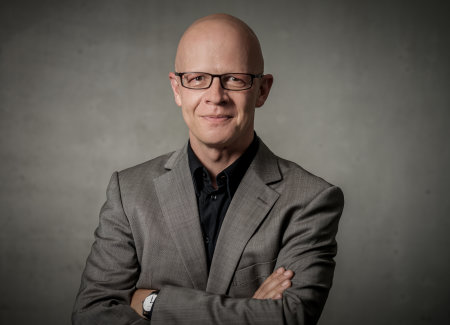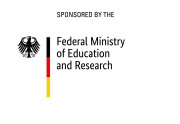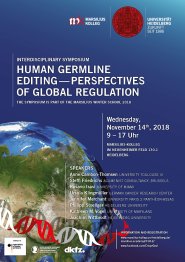Philipp Stoellger
Theology, Faculty of Theology, Heidelberg University

Professor Stoellger holds a chair for systematic theology and philosophy of religion at Heidelberg University. As a fellow of the Marsilius Kolleg (2016–18), he was involved in discussions about the ethical implications of genome editing. His research interests include the analysis of interpretative authority, phenomenology, hermeneutics as well as law and religion. He was a fellow at the Käte-Hamburger-Kolleg “Law as Culture” in Bonn, specifically on the topic “Law and Religion”. Furthermore, he is the founding spokesperson of DFG-Graduate College 1887 “Interpretative authority. Religion and belief systems in conflicts of interpretative authority” and the founder of the “Institute for Iconicity”, both at Rostock University.
Abstract
The question “May we design people” appears to be ambiguous on several levels, among others: ethical or moral. While the ethical question is about the good, the moral question is about justice. Is it possible to describe the state of discourse on this question concerning CRISPR as the opposition between enthusiasm and demonization (“God’s tool” or the assumption of “playing God”), then the ethical task can be summarized in the questions: “What do we want, what should we do – or not” and “Why should we do it?” This talk illustrates the issue using the example of Wolfgang Huber and his four principles of medical ethics (beneficience, nonmaleficience, self-determination and justice). It will be argued that Huber’s arguments against germline interventions, derived from the four ethical and moral principles, are not compelling and could not only be used both for and against such interventions but also, ultimately, speak in favor of germline interventions. In contrast, this talk argues from a theological point of view, suggesting that the crucial question is: “In whose spirit are medical techniques used?” Not the technology itself but rather the spirit of its use is ultimately decisive. This theological approach implicates a consideration of the image of man, the concept of reality, the image of God and the aspects of unavailability and incalculability. As a result, questions of acting power and interpretive power, unavailability, theological reflection, questionability and media will come into view anew.






